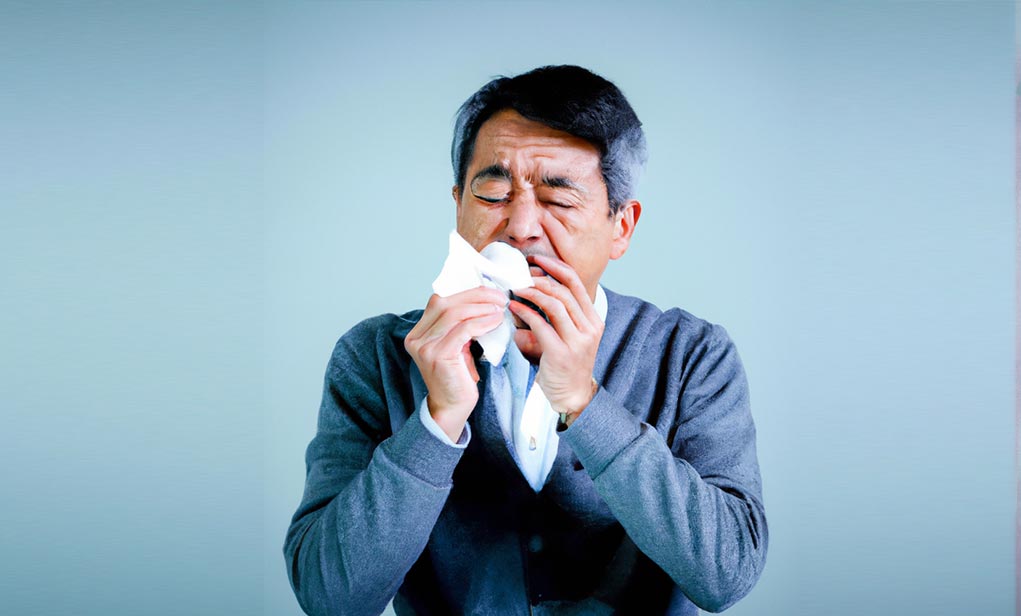Speak to a local care advisor at Assisted Living Locators by calling (888)-267-4741.
Learn about Assisted Living, Senior Living, Memory Care, and In-home care options.
The covid-19 pandemic has changed the landscape of living a life and doing business. It has affected millions worldwide, disrupted supply chains, and forced companies to shut their doors.
Although mass vaccination campaigns worldwide, particularly in the western hemisphere, have reduced the risks to some extent, new variants still pose a significant threat.
Dry cough, fever, fatigue, and runny nose are mild symptoms of Covid-19 and may not appear in all older people. However, if older adult has these symptoms, they should get tested immediately to determine whether they have a common cold or Covid-19. So, this deadly disease can take a massive toll on their overall wellbeing.
Other symptoms of Covid-19 include aches and pains, sore throat, nasal congestion, and diarrhea. While young people infected with Covid-19 may not develop these symptoms and don’t feel sick, older adults can experience severe problems, such as difficulty breathing or asthma.
Not taking the remedies can put older adults on ventilators, leading to death. Likewise, not isolating oneself can increase the risk of infecting other people. Therefore, older people are more vulnerable to Covid-19 and its variants. Today’s article will discuss Covid-19 risks and vaccine information for the elderly. Read on!
Covid-19 and Older Adults – Facts and Figures
Older adults with pre-existing health conditions, including hypertension, diabetes, heart disease, lung disorder, or cancer, are more prone to Covid-19. The new illness can deteriorate their physical and mental health due to a compromised immune system.
According to the Centers for Disease Control and Prevention (CDC), older adults are more likely to get infected and affected by Covid-19. Older adults with a weakened immune system need substantial care in a hospital’s emergency room, intensive care, or a ventilator room to help them breathe.
Otherwise, the risk of mortality can cause their death. So, people above 50 are more vulnerable to Covid-19 and its complications. A study published in BMJ highlights that a third of older adults infected with this new deadly disease can develop multiple conditions that require thorough medical attention.
Some of these conditions develop months after initial infection with Covid-19. Unlike children under nine years of age, older adults with Covid-19 infection have worse complications, leading to death. According to World-O-Meters, about 15% of people over 80 years of age are more prone to dying. The study concludes the death rate for people over 50 years of age:
- The projected death rate for those under 50 is 0.2% to 0.4%
- People between 50 and 59 have a 1.3% projected death rate
- For people between 60 to 69, it is 3.6%
- For older adults between 70 and 79, the rate is 8%
- Individuals over 80% have a death rate of 14.8%
Why are Older Adults at Greater Risk?
The high death rate in older adults is primarily due to chronic conditions. As you age, your immune system deteriorates, your musculoskeletal system malfunctions, and your metabolic/homeostatic system experiences problems. A weakened immune system makes you more prone to infections, including Covid-19.
Although any external pathogen can damage the body and disrupt its organ system, the more your immune system gears up, the higher the likelihood of cytokine storms. According to RACGP, a cytokine storm is a condition that causes the immune system to overreact and produce more cells to fight infections.
As a result, your body experiences severe inflammation, causing significant damage to the body, including organ failure. Cardiovascular diseases, including hypertension, coronary artery disease, and heart disease, are another risk factor for older adults, increasing the chances of death after Covid-19 infection.
However, this does mean that Covid-19 necessarily causes stroke or heart attack. Still, researchers say that older adults with underlying cardiovascular conditions are more likely to experience Covid-19 complications and get severely ill.
Diabetes is another condition that worsens with Covid-19. One famous example is Hollywood actor “Tom Hanks” who suffered from Covid-19 in the initial days of the pandemic. Tom had diabetes that depressed his immune function.
As a result, he found it challenging to fight off Covid-19. Elevated blood glucose or sugar levels in older adults with diabetes provide an ideal environment for Covid-19 and other respiratory viruses to thrive.
Moreover, older adults with chronic respiratory conditions, such as COPD and asthma, are even more at risk of getting infected and affected by Covid-19. Because the new coronavirus and its variants affect the lungs, people with asthma and COPD can end up in a hospital’s emergency room and may need a ventilator for breathing.
Covid-19 Vaccination for Older Adults
Vaccination is mandatory for reducing the risk of getting infected with Covid-19. So, if you are an older adult above 55, you must get vaccinated. Moderna and Pfizer vaccines are more effective in preventing hospitalizations, ventilators, and death due to Covid-19 and its variants.
The good news is that you can access the Covid-19 vaccine centers at multiple locations in your city or state. Providers include local health departments, doctor’s offices, community vaccination centers, pharmacies, and federally qualified health centers.
Most health providers or centers also accept appointments and walk-in visits. The U.S government has made substantial efforts to make vaccines available for people of all ages, including older adults. You don’t need to pay out-of-pocket costs for the Covid-19 vaccine.
Full vaccination for older adults includes the first, second, and booster doses. So, if you want to get fully vaccinated, you must receive a Moderna or Pfizer-BioNTech vaccine at least two weeks after the first dose. If you have taken a single-dose Johnson and Johnson vaccine, you can get a booster dose.
FDA and CDC authorized a second booster shot for people with chronic health conditions in March 2022. A second booster shot/dose is to prevent people from getting infected with Covid-19. Bear in mind that a second booster shot/dose is recommended for:
- People 50 years of age or above who received Moderna or Pfizer shot four months ago
- People with a weakened immune system
- People who received J&J booster four months ago
- In that case, you must receive the second booster vaccine from Pfizer or Moderna.
- People with chronic health conditions, such as diabetes, heart disease, and hypertension
Final Words
Older adults experience various acute and chronic medical conditions due to aging and a sedentary lifestyle. Covid-19 can negatively affect your physical and mental wellbeing. Therefore, follow the protocols defined by CDC and FDA to prevent Covid-19 infections and take the vaccine + booster shots to strengthen your immune system to fight off viral infections.












